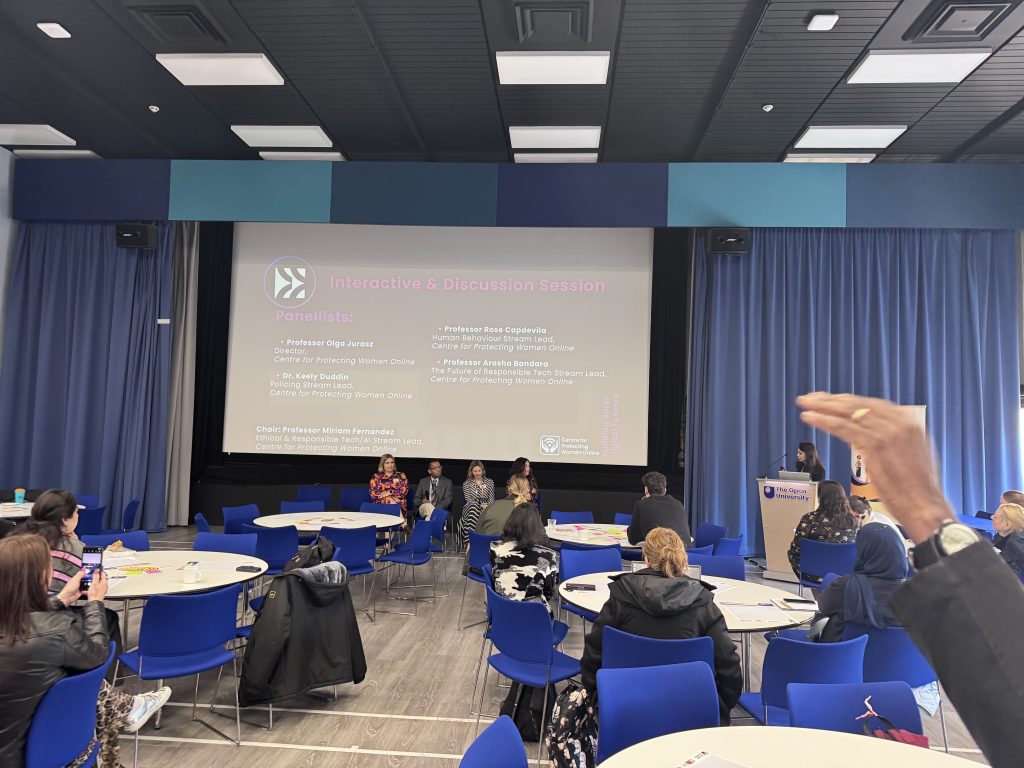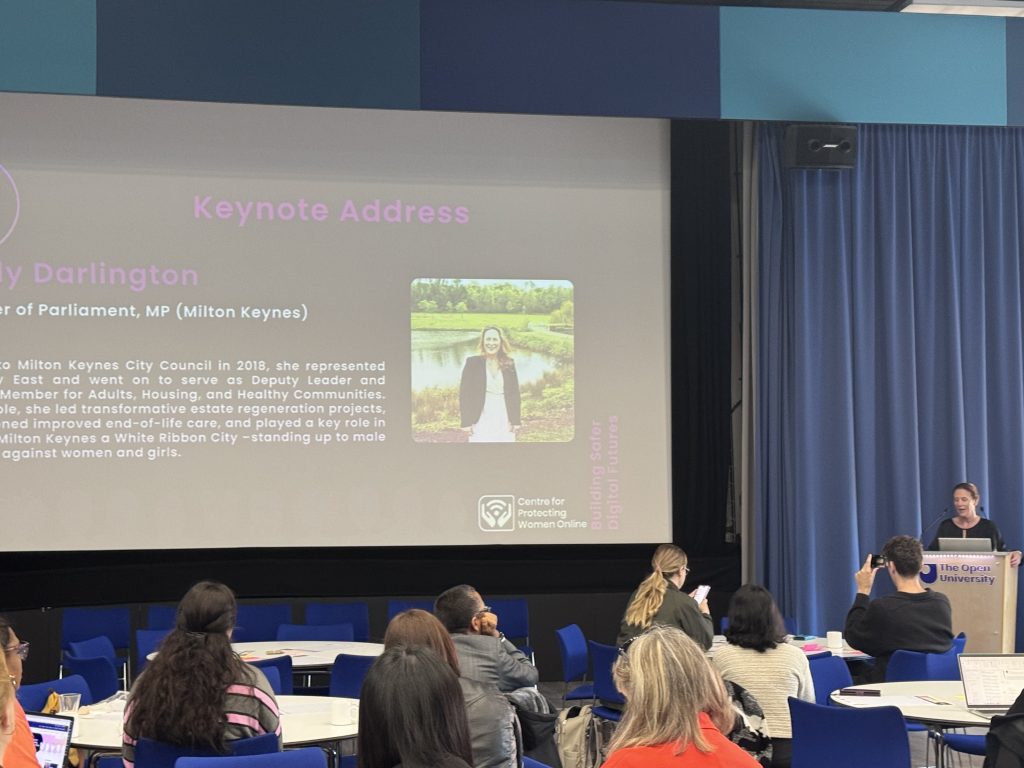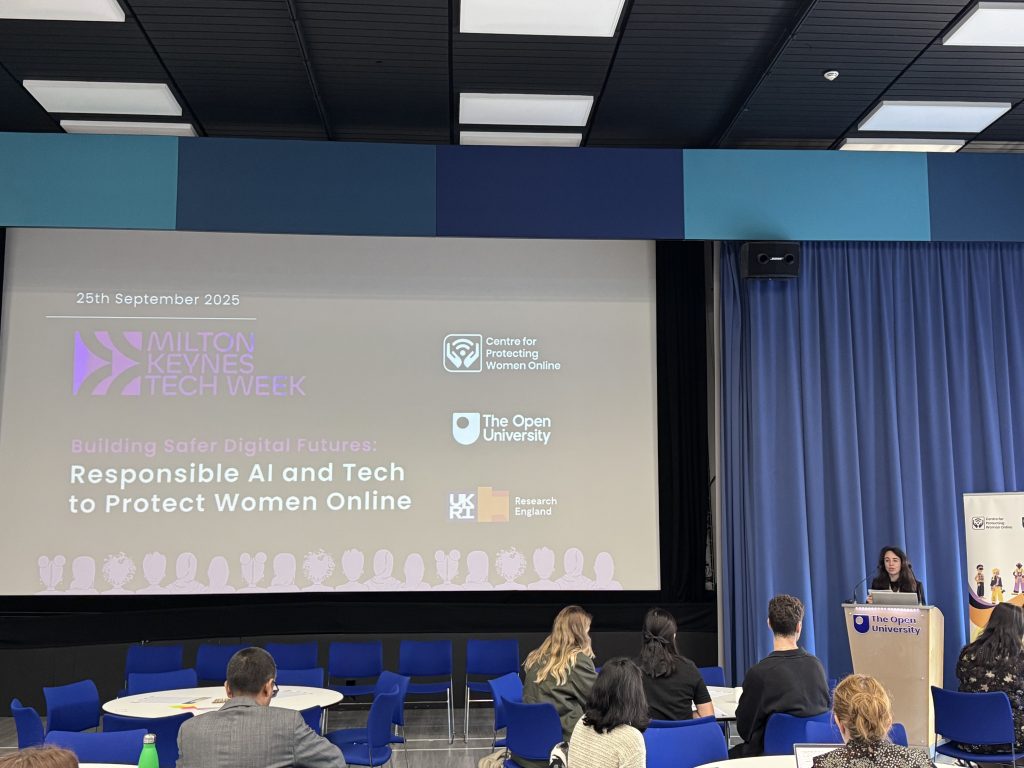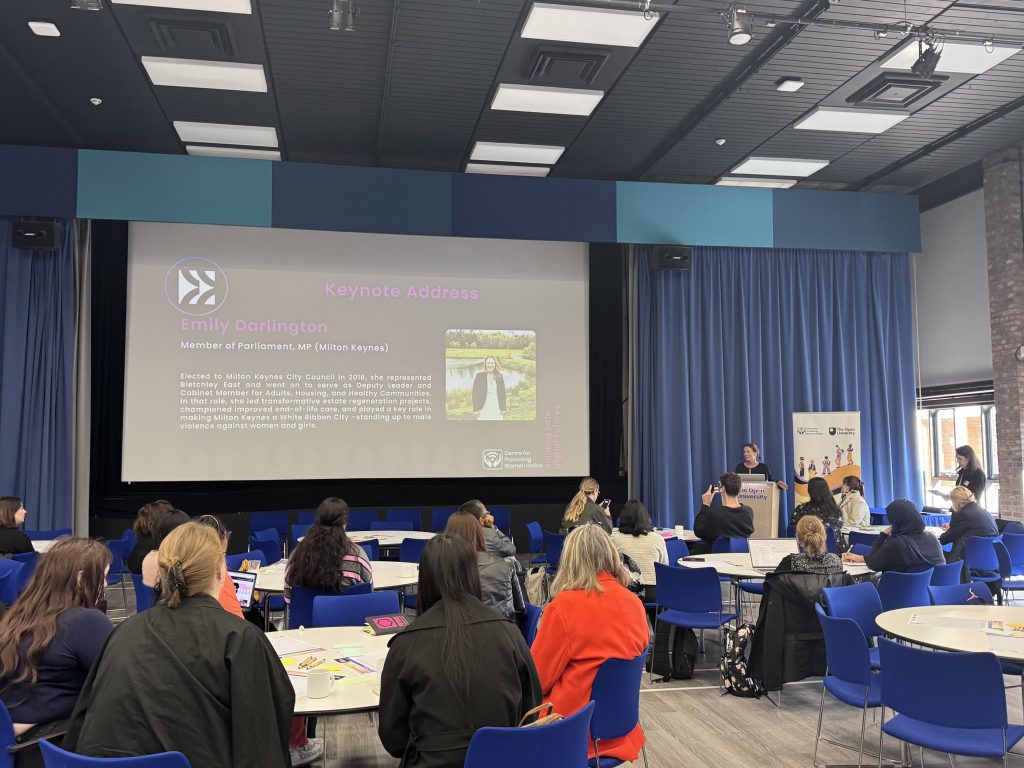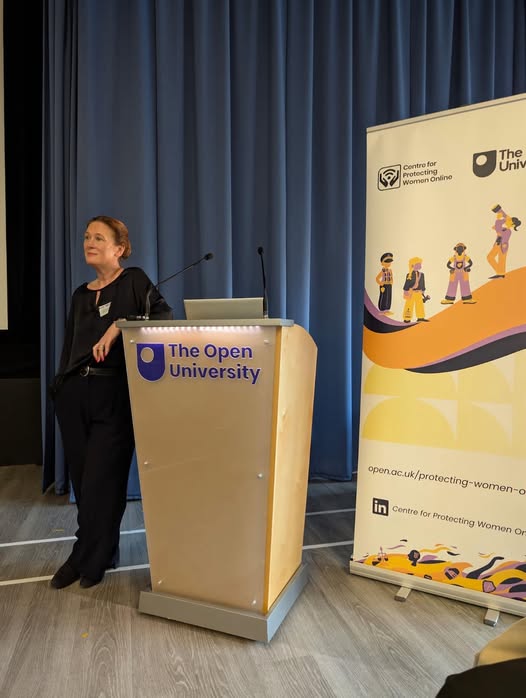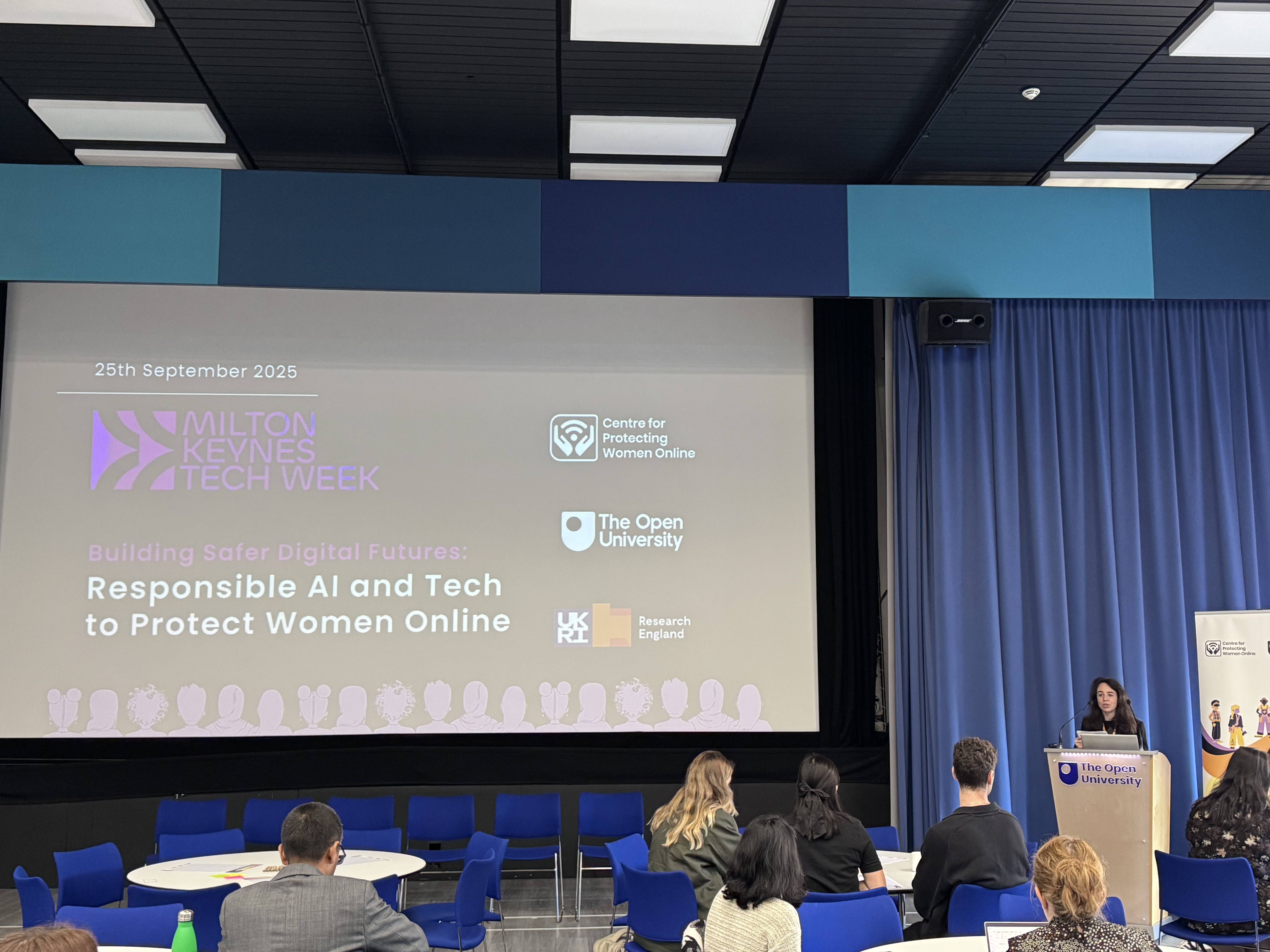
As part of Milton Keynes Tech Week, the Centre for Protecting Women Online hosted a powerful and thought-provoking event — “Building Safer Digital Futures: Responsible AI and Tech to Protect Women Online” — on 25th September, at The Open University.
The morning began with an inspiring keynote address from Emily Darlington, MP for Milton Keynes Central, who shared personal reflections and underscored the urgent need to tackle violence against women and girls (VAWG) both online and offline. Her message set a strong tone for the day, emphasising the role that technology, policy, and community must play in creating safer digital spaces for everyone.
A panel discussion followed, featuring Centre stream leads — Professor Olga Jurasz (Law and Policy), Professor Arosha Bandara (Future of Responsible Technology), Professor Rose Capdevila (Human Behaviour) and Dr Keely Duddin (Policing), with Professor Miriam Fernandez (Ethical and Responsible Tech/AI) as the chair. Together, they offered valuable insights into their interdisciplinary research addressing online violence against women, exploring how responsible AI and digital innovation can support prevention, protection, and empowerment.
To close the session, participants took part in an interactive activity where they shared their perspectives on the challenges surrounding online safety, their personal experiences, and their ideas for tackling digital violence. Many highlighted what they would like to see implemented by online platforms to make the digital world safer and more inclusive.
This event demonstrated the power and necessity of collaboration between: researchers, policymakers, technologists, and the community to build safer digital futures.
A heartfelt thank you to everyone who joined us for these vital conversations and contributed to advancing the dialogue on responsible AI and online safety.
Big thank you to everyone who attended our #MKTechWeek event. Special thanks to our MP, Emily Darlington, for her openness in sharing her experiences as a woman in politics, and to everyone who contributed their ideas and perspectives to address the very pressing problem of technology-facilitated gender-based violence. Special thanks also to those men in the room who shared their views on how to raise greater awareness, as this is not a women’s problem, but a societal one.
Professor Miriam Fernandez
